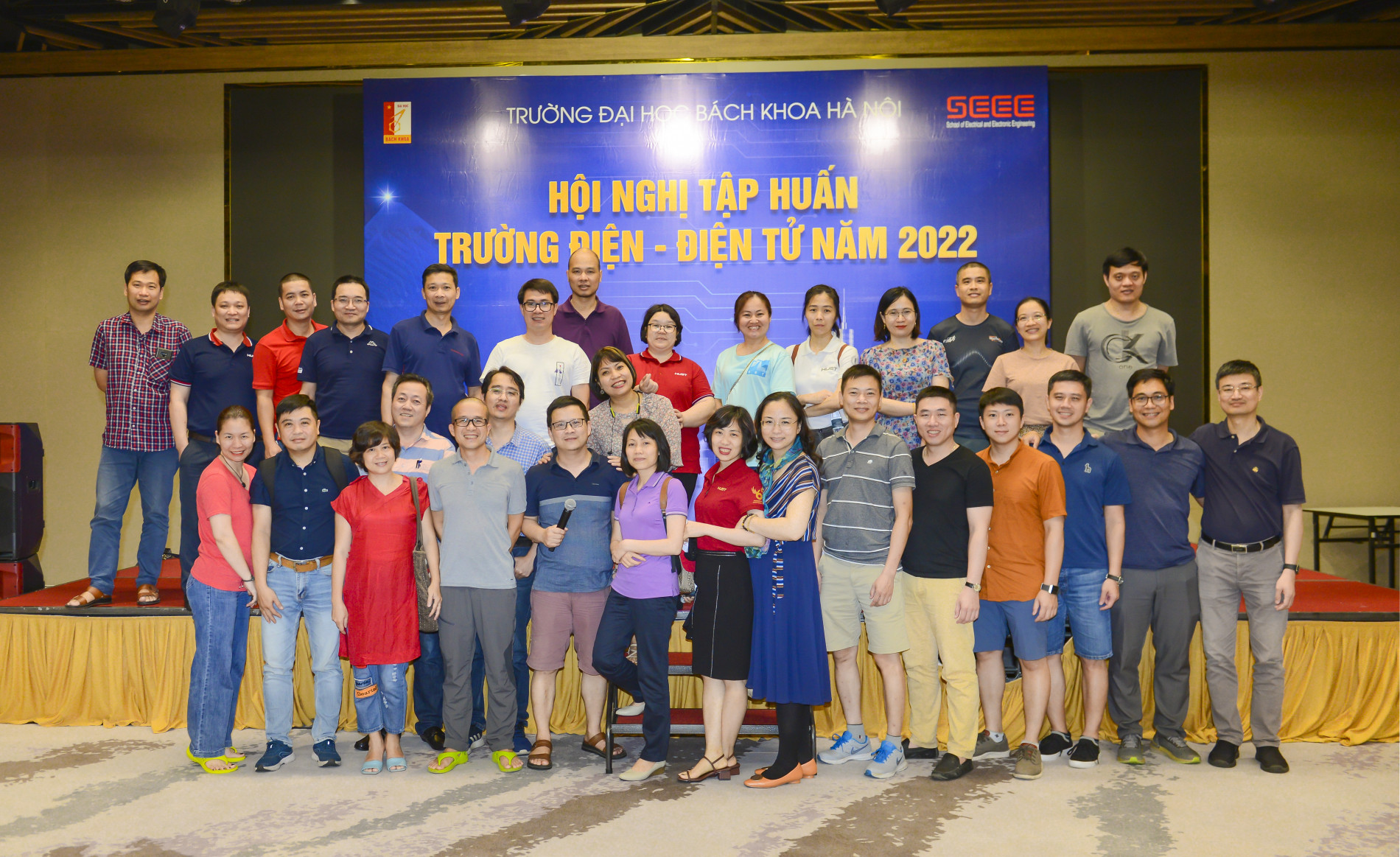
The Department of Electronics, under the School of Electrical and Electronic Engineering at Hanoi University of Science and Technology (HUST), is a third-level academic unit. The department was established on November 18, 2021, by decision of the Rector of HUST, as part of the university's strategic transition to a university model aligned with the new Education Law.
The Department of Electronics is responsible for the academic management of four specialized programs:
Smart Embedded Systems and IoT (ET-E9)
Talented Program in Electronics and Telecommunications (ET-TN)
Biomedical Engineering (ET2)
Advanced Program in Biomedical Engineering (ET-E5)
In addition, the department oversees specialized modules in the Electronics and Telecommunications Engineering Program (ET1), including Electronic Engineering, Embedded Computer Engineering, IC Design, and Biomedical Engineering. It also manages 11 academic groups focusing on Computer Engineering, Circuit and Signal Processing, Electronic Technology, and Biomedical Engineering.
The department’s educational philosophy is aligned with that of the School of Electrical and Electronic Engineering and HUST: "Learner-centered education with strong emphasis on practical training and hands-on experience, guided by modern engineering and technology trends, to develop research and professional skills that meet the demands of industry."
Organizational Structure
Department Leadership
Heads of Academic Groups
Program Directors
Teaching Staff
Department Assistant
The Department of Electronics originated from three departments: Electronics and Computer Engineering, Circuit and Signal Processing, and Electronic Technology and Biomedical Engineering. These departments were initially part of the Faculty of Radio Engineering, which was established with the founding of HUST in 1956. On November 18, 2021, the three departments merged to form the current Department of Electronics, consisting of 35 teaching staff and one department assistant.
The predecessor of the Circuit and Signal Processing Group was the Department of Radio Engineering Foundations, established in 1957 by the late Professor Bùi Minh Tiêu. At that time, the department had three main academic groups: Circuit Theory, Digital Engineering, and Measurement Engineering. It included 14 lecturers and 5 lab technicians, none of whom held a PhD or professorial title at the time. The department operated two laboratories: Circuit and Signal Processing, and Measurement and Communication.
Courses offered included:
Undergraduate foundation courses: Circuit Theory, Digital Signal Processing, Signals and Systems, Measurements, Communication Basics
Project-based courses: Project 1, 2, 3; Final Year Project; Electronics
Graduate-level courses: Space-Time Signal Processing, Ultra-Wideband Communications, Digital Image Processing, Multimedia Communications, Subband Filtering and Coding, Channel Coding, Broadband Relay Networks and Applications, System Modeling and Simulation, and Radio Optimization for Next-Generation Mobile Networks.
(Additional sections on the Computer Engineering and Biomedical Engineering groups may follow here.)
The department currently has 35 academic staff members, including:
8 Associate Professors
24 PhDs
3 Master’s degree holders
The Department of Electronics offers training and research in the following areas: electronic circuits, signal processing, analog and digital electronics, embedded systems and IC design, programming and software engineering, as well as biomedical devices and technologies.
Bachelor’s Level
Standard Electronics and Telecommunications Program (with orientations in Electronics and Computer Engineering; Biomedical Engineering)
Advanced Program in Smart Embedded Systems and IoT
Advanced Program in Biomedical Engineering
Talented Program in Electronics and Telecommunications
Engineer’s Degree
Electronic Engineering
Biomedical Engineering
Master’s Level
Standard Master's Program in Electronic Engineering
Standard Master's Program in Biomedical Engineering
Advanced Master's Program in Electronic Engineering
Advanced Master's Program in Biomedical Engineering
Advanced Master's Program in Electronics – Smart Embedded Systems
Talented Master's Program in Electronics and Telecommunications
Doctoral Level
Doctoral Program in Electronic Engineering (standard program)
Author: Admin Super
Reader Comments
Newer articles
 Recruitment advertisement of Shimadzu Vietnam Co., Ltd.
Recruitment advertisement of Shimadzu Vietnam Co., Ltd.
 The Semiconductor Industry Is Rapidly Becoming a Popular Field of Study Wednesday
The Semiconductor Industry Is Rapidly Becoming a Popular Field of Study Wednesday
 HUST Support Bach Mai Hospital with Data Processing
HUST Support Bach Mai Hospital with Data Processing
 INTRODUCTION TO THE BIOMEDICAL ENGINEERING PROGRAM
INTRODUCTION TO THE BIOMEDICAL ENGINEERING PROGRAM
 Mr. Marc E. Knapper, the U.S. Ambassador to Vietnam, visited and worked with Hanoi University of Science and Technology
Mr. Marc E. Knapper, the U.S. Ambassador to Vietnam, visited and worked with Hanoi University of Science and Technology
 Prime Minister approved the Development Plan for Hanoi University of Science and Technology (HUST) to become one of the leading higher education institutions in Asia.
Prime Minister approved the Development Plan for Hanoi University of Science and Technology (HUST) to become one of the leading higher education institutions in Asia.
 Equipment Support Agreement Signed Between Faculty of Electrical Engineering and LS Electric Vietnam
Equipment Support Agreement Signed Between Faculty of Electrical Engineering and LS Electric Vietnam
 Grand Opening of the i3-Mechatronics Smart Automation Lab: A Leap Toward Industry 4.0
Grand Opening of the i3-Mechatronics Smart Automation Lab: A Leap Toward Industry 4.0
 Powering the Future: Innovative S&T Models for High-Renewable Power Systems
Powering the Future: Innovative S&T Models for High-Renewable Power Systems